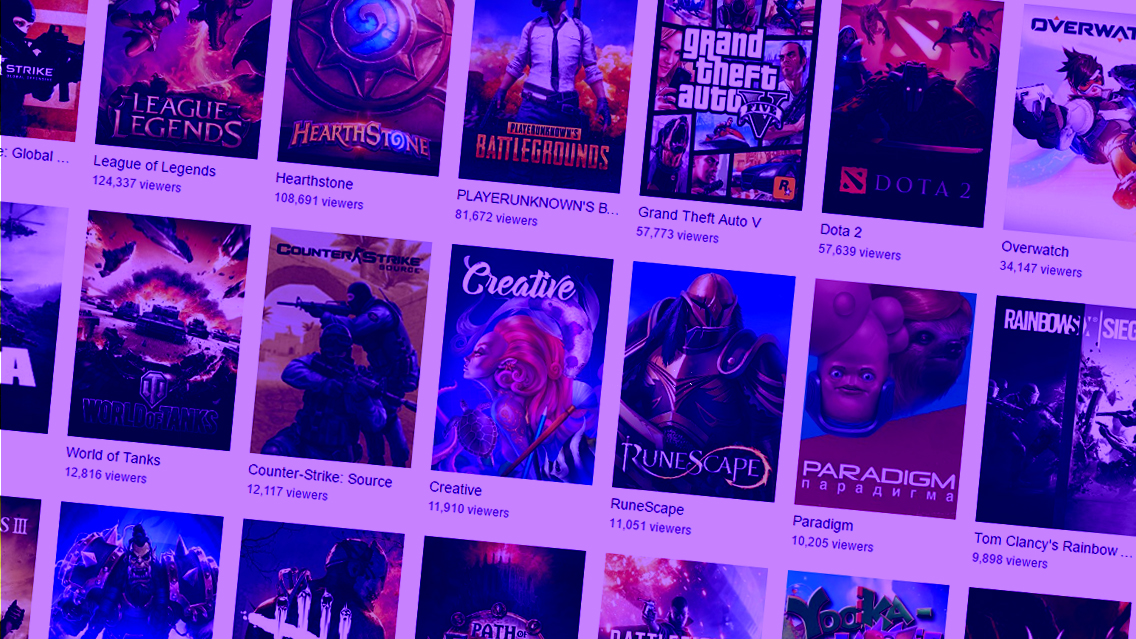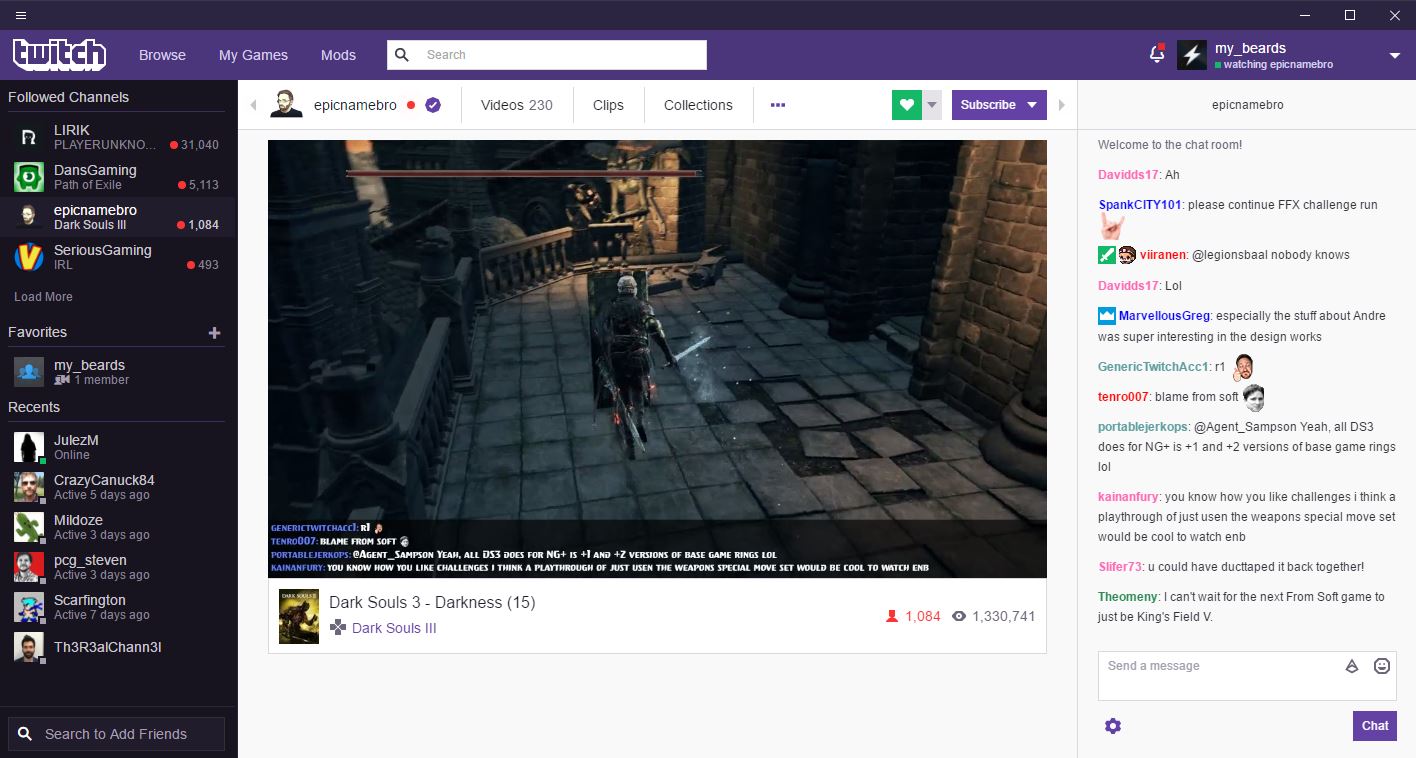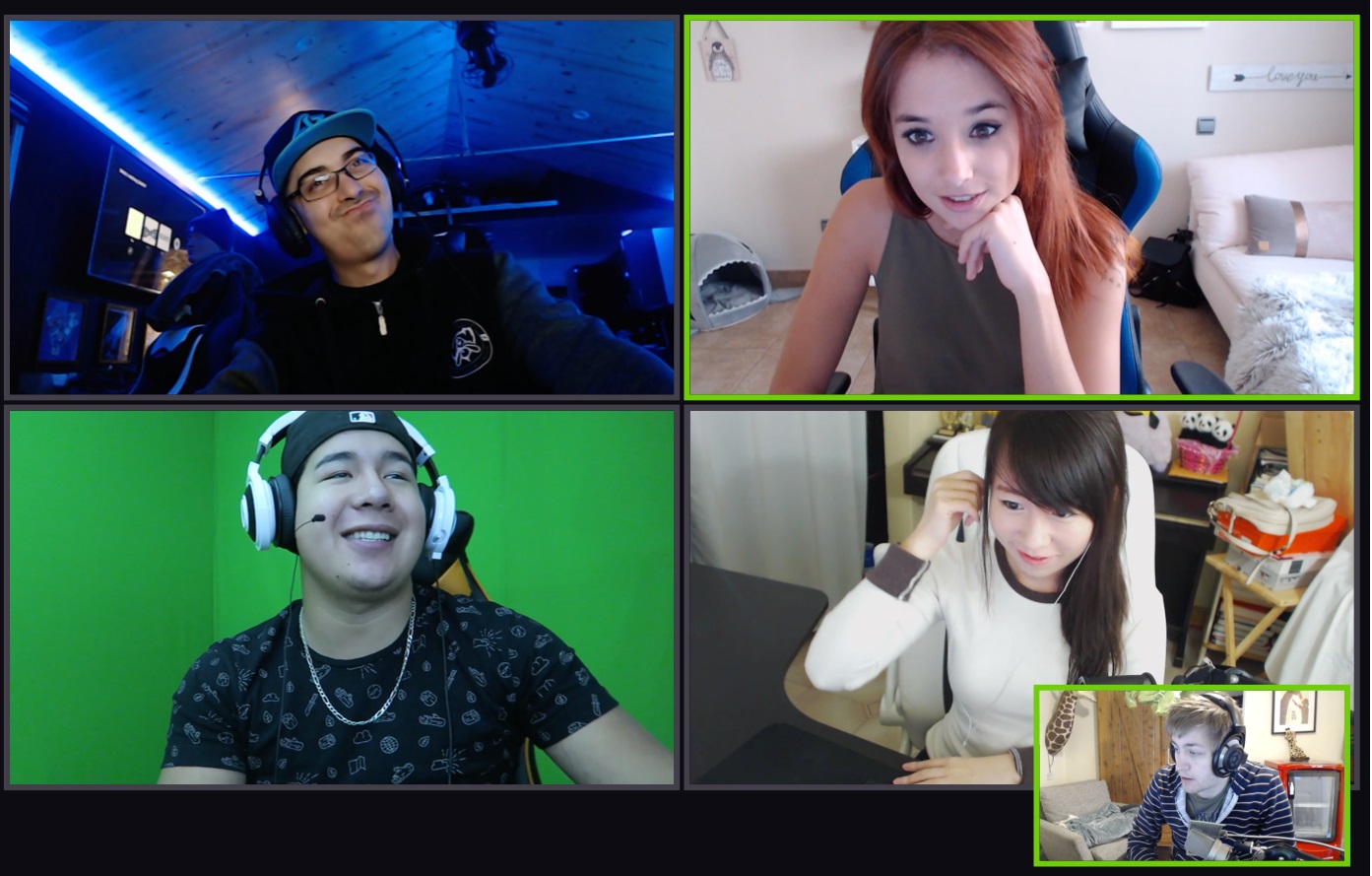Twitch's desktop app doesn't do the basics better than Discord
The Twitch desktop app is an ungainly attempt to do everything.

As the latest and most ambitious project coming from Twitch this year, the Twitch desktop app is a clear attempt to take on popular social gaming services, Discord in particular. It brings most of the features from the Twitch web browser experience to a standalone application, while wrapping in additions to the platform that we were told to expect when Twitch announced the beta earlier this year. You can manage another game library if you’ve bought anything directly from Twitch or received games through a Prime subscription. Simple mod management for select games makes for a soft bullet point too, but it's Twitch's social services at the forefront: private messaging, group chat servers, voice calls, screen sharing, and video calls.
If you think that sounds like Twitch is throwing its weight into areas already dominated by Discord and Steam, you aren’t wrong. Even though I’m already a heavy Twitch viewer and respect the attempt at rocking the boat, it’s going to take a lot more from the desktop app as it exists now to convince anyone to make the switch.
Twitch's brew
The first thing I noticed after downloading the Twitch app and connecting my account was that the app’s interface looks almost identical to Twitch’s website in a browser. While I fully support a consistent user experience across platforms, I just don’t see the app making many converts. If the experience is virtually the same, would a casual Twitch viewer really want to download a standalone app for a service they use sparingly? There’s a case to be made that having the app at your fingertips could turn casual viewers into consistent ones but I don’t buy it. I already run too many applications on my system at once and the coveted spots in my boot up routine are earned only by services I already use heavily, not those I’m courting.
It stands to reason, then, that the app is meant for frequent Twitch users and would offer features to enhance heavy viewing—but it doesn’t.

Instead, it strips out third-party services that are taken for granted by viewers watching from web browsers. The most apparent missed opportunity is the functionality offered by multitwitch and kbmod’s multistream, two sites that allow you to watch and interact with multiple Twitch streams at once. The Twitch app restricts you to one channel at a time, an obvious downgrade even from opening multiple streams in separate browser tabs.
Another big miss is lack of support for either Better Twitch TV or FrankerFaceZ, both popular options for allowing viewers to use custom emotes in non-partnered channels and make other personal tweaks to Twitch’s interface. I’m not surprised that after bringing custom emotes to Affiliate channels, Twitch would want to squeeze out third-party add-ons like BTTV that alter the company's vision for the Twitch experience.
The only major leg up over Discord is inclusion of video calling and screen sharing.
Although the game library nominally exists, the selection of games currently available is limited. You can't purchase games in the application itself. Instead, you're redirected to Twitch’s storefront in your browser. Managing game mods is also a bit of a sideline feature. It feels like the mods tab was included to prevent any outcry from former users of the Curse mod manager that would otherwise be left high and dry. While both of these features are interesting, many of us already have preferred digital storefronts and mod managing tools. It doesn’t seem like Twitch is going to bat in those areas just yet, though it’s shoved a foot in the door to do so later.
The biggest gaming news, reviews and hardware deals
Keep up to date with the most important stories and the best deals, as picked by the PC Gamer team.
The biggest draw of the app are the chat server functions, which as Andy mentioned after the announcement in March, sound a lot like Discord’s. Indeed, it’s immediately clear whose head Twitch is hunting. Thanks to the Twitch rebrand of the Curse client, the application has all the same basic functionality that Discord does. Adding a friend on Twitch is easy, as long as your friends already have Twitch accounts and you don’t have to talk them into making one. For current Twitch and Discord communities, giveaways and polls are often run in chat by external services. Although Twitch’s version doesn’t add anything new to the concept, including them in the app is an attractive feature for casual users who don’t care to chase down and set up bots or other linked accounts.

The only major leg up over Discord is inclusion of video calling and screen sharing. Both video and voice calls can be started with any friend signed into the Twitch app by clicking the respective icons in your private chat window with that person. You can also enable in-game overlays so if you get a call, it'll pop up on the screen. They're intuitive features that users looking for an alternative to Skype or who want to stream with a small, private audience will get some good mileage from. But with Discord already testing their screen-share and video call features with a portion of their users, I don’t expect it'll pull too many users from one to the other in the long term.
Hounds of Discord
Discord’s explosive popularity is largely thanks to its security features. It originally turned heads with the client-server architecture that keeps your IP address safe from other users. Gamers and streamers both had been using Skype to communicate for several years prior to 2015, but the increasing prevalence of reported DDoS attacks and phishing scams due to Skype vulnerabilities made Discord's security features attractive and timely. Two-factor authentication and virus scanning for shared files certainly helped catapult Discord over Skype. The sleek, simple interface helped put longstanding services like Teamspeak and Ventrilo out of style as well.
The Twitch app has no such pitch. It's absorbed Curse’s framework without adding any draw aside from the name. The chief selling point is integration. You can live your entire gaming social life on the Twitch platform. To me, that feels like more of a threat than a service.
Now you can watch Kappa heads fly by on private chat servers.
I’m part of several Discord servers, PC Gamer’s among them, which did not originate from Twitch channels. Much like I never wanted to route all my instant messaging through Facebook’s platform, I don’t want all my gaming communities to live on Twitch. Social fears aside, the real question is whether or not the Twitch app feature list stacks up against the dominant competition in the areas it’s attempting to tackle. Even as a Twitch fan and avid user, I’m afraid the answer is no.
Twitch’s app works, and right now that’s the highest praise I have for it. You can watch Twitch streams, chat with any Twitch users you’ve added as friends, make voice and video calls, screen-share, manage mods for select games, and even buy games. Although it does all of these things and has clear plans to do more, it does none of them exceptionally well. Without even one truly standout feature and no actual improvements on its competitors', there’s no reason to abandon Discord’s steady ship.
A clear lack of focus makes this ungainly Twitch-Steam-Discord hybrid a poor foundation for the future of the Twitch app. As a great man once said, “Never half-ass two things. Whole-ass one thing.” The Twitch app is currently half-assing a lot of features and until I see them whole-ass even one, you’ll still find me buying games on Steam, chatting on Discord, and most importantly: watching my favorite streamers in a web browser. The window juggling is still worth it.

Lauren has been writing for PC Gamer since she went hunting for the cryptid Dark Souls fashion police in 2017. She accepted her role as Associate Editor in 2021, now serving as self-appointed chief cozy games and farmlife sim enjoyer. Her career originally began in game development and she remains fascinated by how games tick in the modding and speedrunning scenes. She likes long fantasy books, longer RPGs, can't stop playing co-op survival crafting games, and has spent a number of hours she refuses to count building houses in The Sims games for over 20 years.

